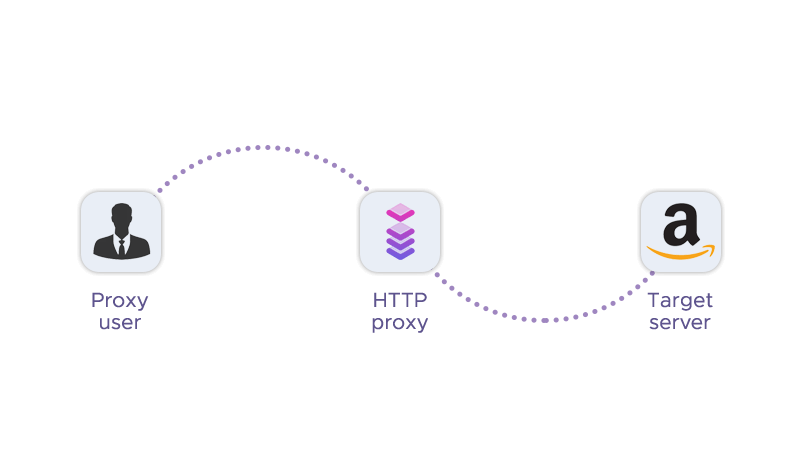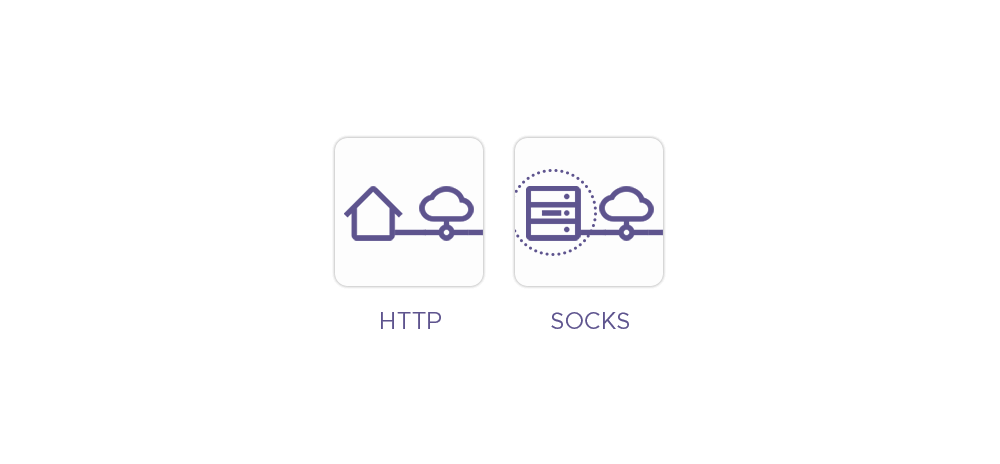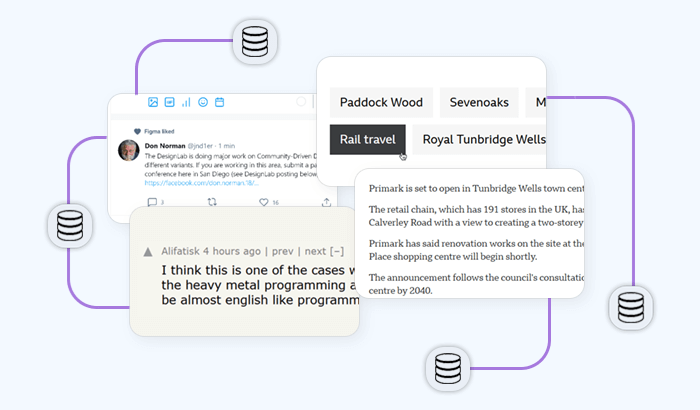

In a world where quick and reliable access to data is crucial, HTTP proxies are an important tool for companies of all sizes. To use this tool more effectively, you can use this guide to gain a better understanding of this proxy type. In this overview, we’re taking a closer look at HTTP proxies and answering all common questions related to them: What is an HTTP proxy? What is a HTTP proxy server? How does an HTTP proxy work? And more.
What is an HTTP proxy?
An HTTP proxy is a server that sits between a client and a web server, forwarding HTTP requests from the client to the web server. When a client makes an HTTP request, it sends the request to the proxy server. The proxy server then forwards the request to the web server, and the web server sends the response back to the proxy server. The proxy server then forwards the response back to the client.
Proxies can be used for a variety of purposes, such as to filter or cache content, to block certain types of content, or to bypass firewalls or other restrictions. Proxies can also be used to change the IP address of the client, making it appear as if the request is coming from a different location.
How does HTTP proxy work?
An HTTP proxy server works by intercepting and forwarding HTTP requests from a client to a server. When a client (such as a web browser) sends an HTTP request to a server, the request is first sent to the proxy server. The proxy server then examines the request and decides whether or not to forward it to the intended server.

The proxy server can also modify the request before forwarding it, for example, by adding or modifying headers to add authentication information, or by filtering out certain types of content. The server then sends the response back to the proxy server, which can also modify the response before forwarding it back to the client.
It's worth noting that there are different types of HTTP proxy, like transparent proxy and anonymous proxy. Transparent proxy reveals the client's IP to the server and an anonymous proxy hides the client's IP address and other identifying information to the server.
So why use an HTTP proxy in the first place?

The main advantage of using an HTTP proxy service is that it can help to hide the client's IP address and other identifying information from the server, providing a degree of anonymity. Additionally, it can also be used to cache frequently-requested content, reducing the load on the origin server and improving performance.
- Caching: Proxies can cache frequently requested content, which can significantly reduce the load on the origin server and improve the response time for clients.
- Anonymity: They can hide the client's IP address, providing anonymity for the client and making it more difficult for parties to track the client's online activity.
- Filtering: HTTP proxies can filter or block certain types of traffic, such as unwanted advertising or malicious content.
- Compression: They can also compress the data being sent between the client and the server, reducing the amount of data transferred and improving the response time.
- Access control: An HTTP proxy can be used to control access to certain resources, such as requiring authentication or blocking requests from certain IP addresses.
- Load balancing: Proxies can be used to distribute incoming traffic across multiple servers, improving the scalability and reliability of a server infrastructure.
Are SOCKS and HTTP proxies one and the same?

A SOCKS and HTTP proxy are not the same thing. They are both types of proxy servers, but they work differently and are used for different purposes. HTTP proxies are used to relay HTTP (and HTTPS) traffic. They work at the application layer of the OSI model, specifically the HTTP protocol, HTTP proxies are typically used to bypass censorship or access geo-restricted content.
SOCKS (Socket Secure) proxies, on the other hand, are a lower-level type of proxy that work at the socket level of the OSI model. SOCKS proxies can be used to handle any type of traffic, not just HTTP. They are typically used to bypass firewalls or access network resources on a restricted network.
To summarize, HTTP proxies are used for HTTP traffic and SOCKS proxies are used for all types of traffic.
❓Further reading: SOCKS5 vs HTTP Proxies
Frequently Asked Questions
eu5.infatica.io. The full proxy address also features a port number, which typically consists of four or five digits and is separated from the URL with a colon (e.g. eu5.infatica.io:7000.)












